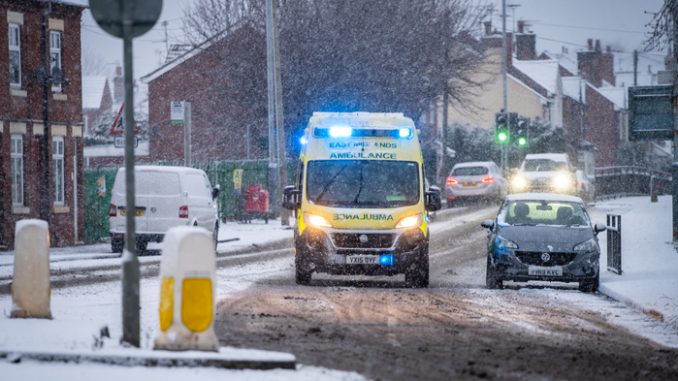
As reported by Medscape, a survey reveals concerns among NHS trusts, with 80% expecting this winter to be even more challenging than the last
More strikes, staff burnout, and relentlessly rising demand for care amid a severe funding squeeze could jeopardise progress in cutting delays for patients, health leaders have warned.
Many NHS trusts expect this winter to be even tougher than the last, according to a survey of 185 NHS leaders from 118 trusts carried out by NHS Providers.
Two out of three (66%) reported that last year was the “most challenging” they had ever seen, with 80% fearing this winter would be even tougher.
“Fault-lines” included workforce challenges and staff shortages, a lack of sufficient capital investment together with wider financial pressures, as well as a need to address health inequalities and place social care on a sustainable footing, the results of the survey conducted online during September and October showed.
However, despite huge challenges, the survey showed an “undiminished determination” to keep improving patient care, and to give patients the “right care in the right place”, NHS Providers reassured.
The State of the Provider Sector survey is the latest annual snapshot of the hopes and fears of leaders of hospital, mental health, community, and ambulance services across England.
The survey was sent to leaders from all trusts, representing all types and regions, with just over half (56%) responding.
Worryingly, fewer than one in three (30%) thought that the quality of health care they could provide in the next 2 years would be ‘very high’ or ‘high’.
Asked to rate the quality of care currently on offer, only one in a hundred (1%) ranked it very high, with 40% believing it was high. In 2022, 48% thought care quality was high or very high. Just under half (49%) rated current quality of care as average, and one in twenty (5%) said it was low.
The survey found that almost all respondents (95%) were concerned about the impact of winter pressures, with the majority (78%) worried about having enough capacity to meet demand over the next 12 months – up a third on the 2019 prepandemic figure of 61%.
“There is winter planning in place, but there’s too much going on in systems with finite resource,” commented an acute specialist trust in London.
Burnout (84%) and morale (83%) in the workforce were of great concern, as were further strikes, which respondents feared would undermine efforts to cut waiting lists and cause additional delays in planned and emergency care, with a “knock-on effect for services right across the NHS”.
“The NHS can’t afford further strikes,” warned Sir Julian Hartley, chief executive of NHS Providers. “As we head into what’s expected to be another gruelling winter, the spectre of more strike action continues to loom large over the health service,” he alerted.
More than three in four trust leaders (76%) reported that they were facing a worse financial position than last year. Funding pressures were fuelling concerns about future patient safety and the quality of care as well as threatening to hit trusts’ ability to ramp up services as they braced for winter.
Steps being taken to curb costs included shelving plans for more beds, putting recruitment plans to plug gaps in the workforce on hold, and reducing investment in community and mental health facilities.
“Currently, only nonclinical services have scaled back,” reported one acute trust in the South West. However, further options were being considered, that “may include closing unfunded beds”.



Be the first to comment